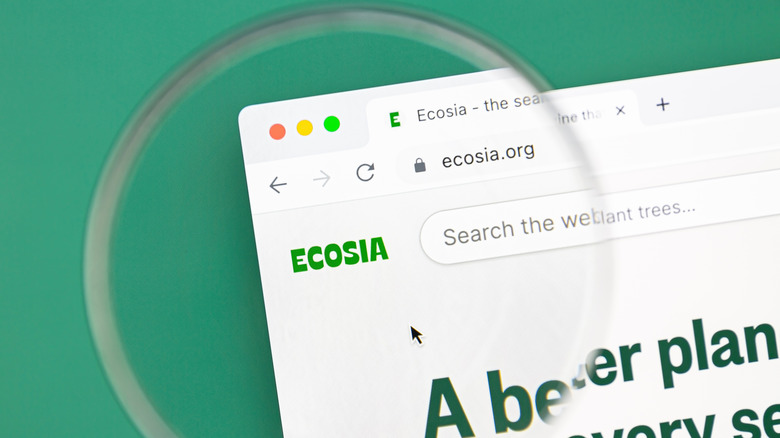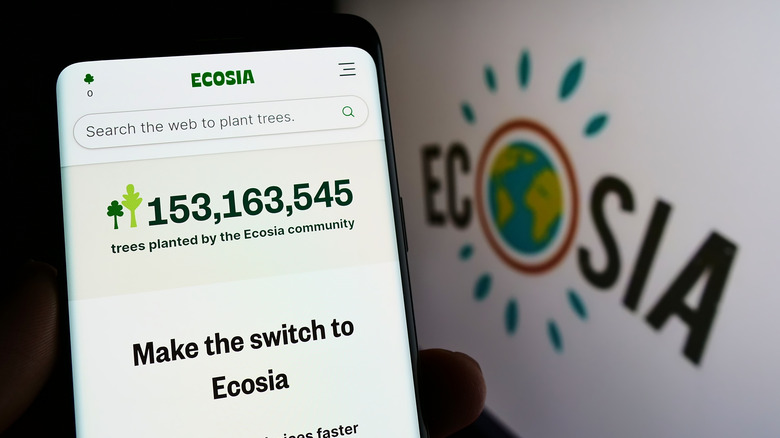Ecosia: Who Owns The Non-Profit Search Engine & How Do They Make Money
Christian Kroll, a German entrepreneur, created Ecosia in 2009 from his Berlin apartment, where it became the world's first non-profit search engine. He continues to run the non-profit as its CEO. Oftentimes when somebody comes up with a business idea, they approach it from a money-making perspective. Kroll's idea was different because he simply wanted to make the world a little bit better by planting trees wherever he could. He traveled a little during his college years and saw how beneficial planting trees can be. Of course, embarking on such an endeavor on a large scale isn't cheap, and Kroll knew this. He also knew that search engines could bring in a good amount of revenue. Thus, Ecosia was born.
By 2017, Ecosia had planted 10 million trees, and that number skyrocketed to 160 million by 2022. If you're an environmentally-conscious person looking for a way to turn around climate change, Ecosia could be an alternative search engine to Google for you. Over 20 million people use Ecosia and each person who uses the search engine increases the numbers of trees that get planted around the world. Kroll took his commitment as CEO to Ecosia's mission further when he agreed to a legally-binding model that made the company steward-owned.
This contract means profits can't be taken out of the company, nobody outside of the company can own its stock, nor can they sell their shares for a profit. Kroll wrote on the Ecosia blog, "We're not interested in maximizing profits, we're interested in maximizing the amount of trees we plant."
How Ecosia makes money as a non-profit
It's natural to wonder how making enough money to stay in business is possible for a search engine, especially for one that is run by a non-profit organization, not to mention one that plants trees around the world and has its own solar panels. It's not like there's anything to purchase from a search engine. Many companies might collect and sell user data, but Ecosia takes a rare approach in that it doesn't, much like DuckDuckGo's privacy browser. Since it doesn't collect private information, it has no need for personalization algorithms that bigger search engines employ. Ecosia's main revenue stream comes from advertisements displayed around the search engine. Every time a user clicks on an ad, Ecosia earns money from the advertiser.
However, even if no one clicked on them, the ads can still be valuable. Ad space becomes more valuable when a website has more users. In December 2024, Ecosia earned over $4 million and averages roughly $3 million a month. The non-profit shares its financial reports on the Ecosia blog along with daily updates because it values transparency. Visitors can see how much Ecosia has spent on trees, operational costs (office expenses, travel expenses, personnel, and servers), and even what it has spent on taxes.
According to Kiril Ivanov, in a paper he published through World Scientific Publishing (the link will download a pdf onto your device), "...it invests 20% of its surplus income towards renewable energy, regenerative agriculture, and grassroots activism and the remaining 80% into planting and protecting trees worldwide."

